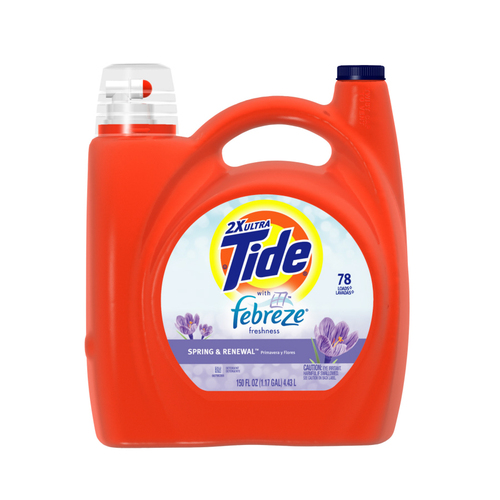High Tide
The most often shoplifted food item in the world, according to the Consumerist, is cheese. It can be expensive, it’s easily pocketed, and tastes good, too, but that’s not the only driving force. As the Huffington Post notes, the real reason for its theft is because its resale value is high, especially when restaurants enter the buyer’s market. (After all, do you really know where your cheese wholesaler obtained those one pound blocks of provolone from?)
This shouldn’t be surprising. Thieves try and make off with high priced goods for exactly this reason. So when stores started noticing that Tide — the liquid laundry detergent — was flying off the shelves courtesy of five-finger discounts, investigators weren’t looking for shoplifters who simply had a lot of dirty clothes. They figured that, for some reason, a black market for Tide had to exist. But outside of laundromats and commercial laundries (for example, the companies which wash all the sheets and towels used by hotels), there isn’t an obvious buyer for large volumes of stolen Tide. And to complicate matters, Tide’s price is fueled by a strong brand and excellent marketing, and not its actual in-washer power; it isn’t much more effective (if at all) than the cheaper alternatives such as Gain, Purex, or Cheer, so there’s little reason for legitimate businesses to buy stolen Tide when they can get legal detergent at the same price.
The answer? Tide was being used as currency — currency to buy drugs.
As reported by The Daily, officials tracked down a Minnesota man who, over the course of 15 months, made off with over $25,000 of the detergent. While each 150 ounce bottle retailed for as more than $20 in the stores, the crook can get $5 to $10 back on the street — in cash or in drugs. There were even some reports of dealers specifically asking that they be paid in Tide, with one saying that he would “hook [the buyer] up if you can get me 15 bottles of Tide.” U.S. News and World Report quoted an Oregon police detective who said that he had seen “people walking down the street with six, seven bottles of Tide.”
As the Atlantic explains, this was no two-bit operation. The Federal government sees this as a part of something called “organized retail crime,” where the shoplifters — known as “boosters” in the racket — start the chain of events which cause, in total, as much as $40 billion in retail losses each year, nationwide. One particularly crafty tactic? The booster will sell the item into a fencing syndicate which will try and return the Tide back to a store for 100% of retail price — plus sales tax.
To date, Tide is not regulated by the Drug Enforcement Administration.
Bonus fact: In March of 2010, a California man named Robert Ferguson was sentenced for stealing a $4 bag of cheese from a local grocer. His sentence? Eight years in prison. Why? Ferguson had two prior convictions, and under California’s three strikes law, the third conviction came with a mandatory 25 years to life sentence. His psychiatric history, which included a diagnosis of bipolar disorder, gave the judge leave to reduce the prison term.
From the Archives: Half Baked: The odd role of baking soda in the war on drugs.
Related: A two-pack of 150 ounce bottles of Tide.

